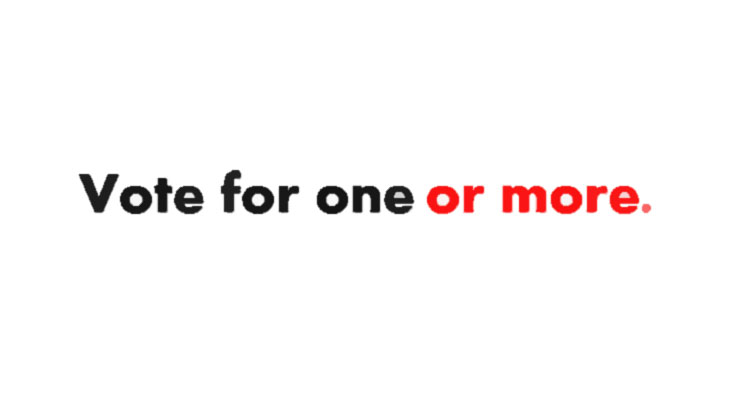 After a landslide victory bringing approval voting to its first U.S. city in 2018, The Center for Election Science (CES) has joined forces with St. Louis Approves to advance an initiative to bring approval voting to voters in St. Louis, MO. CES has provided STL Approves with a grant of $75,000 to help fund their political advocacy campaign, which includes gathering signatures to get the approval voting initiative on the ballot in April 2020. CES itself will run an education campaign, providing resources to help St. Louisans understand what approval voting is and how it can benefit them.
After a landslide victory bringing approval voting to its first U.S. city in 2018, The Center for Election Science (CES) has joined forces with St. Louis Approves to advance an initiative to bring approval voting to voters in St. Louis, MO. CES has provided STL Approves with a grant of $75,000 to help fund their political advocacy campaign, which includes gathering signatures to get the approval voting initiative on the ballot in April 2020. CES itself will run an education campaign, providing resources to help St. Louisans understand what approval voting is and how it can benefit them.
“We’re glad that national leaders see St. Louis as a leader in the fight for more democratic elections,” said STL Approves petitioners Rasheen Aldridge, Jr. and Tyler Schlichenmeyer. “This is when the real effort begins. We are proud of our broad grassroots movement, and we encourage more St. Louisans to come to our event on June 4 to learn more and support this desperately needed reform.”
With approval voting, voters can vote for as many candidates as they approve of. In the St. Louis proposal, voters can choose all the candidates they like in the primary, and the top two vote-getters will advance to a runoff in the general election. Voters can always vote for their favorite candidate without worrying about a spoiler. They can also vote for multiple candidates with similar platforms, eliminating vote splitting. This is a simple yet transformative solution to St. Louis’s “plurality problem.” Due to vote splitting, recent St. Louis city elections have resulted in winners who received less than 36% of the vote—far short of a mandate to govern.
“It’s exciting to see yet another community rise up and embrace approval voting as a simple tool to empower their voters,” said CES executive director Aaron Hamlin. “We can’t wait to work with and learn from the people of St. Louis.”
In 2018, CES worked alongside Reform Fargo on a successful ballot initiative campaign that made Fargo, ND the first city in the U.S. to implement the method. They plan to use what they learned during that campaign to educate voters in St. Louis and bring a better ballot to yet another city.
David Anderson says
Looks like a decent system.